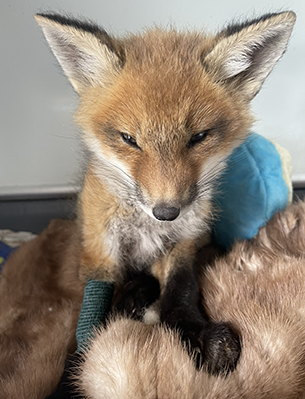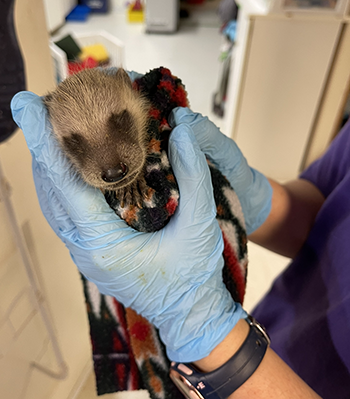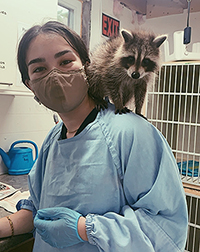 Spring has Sprung! And with it comes baby season for the wildlife in Ontario! It can be confusing and a little scary when you find wildlife babies. As animal lovers we want to do what is best for them while keeping ourselves and our pets safe.
Spring has Sprung! And with it comes baby season for the wildlife in Ontario! It can be confusing and a little scary when you find wildlife babies. As animal lovers we want to do what is best for them while keeping ourselves and our pets safe.
Kiara, one of our CSRs, is passionate about helping wildlife. She has passed the Ontario wildlife rehabilitation exam and rabies vector species certification. She has put together this post to help give you some guidance around wildlife contact.
DO NOT FEED WILDLIFE
Hand feeding or purposefully placing food on your property for wild animals draws them into human spaces, which not only puts them at risk but can also puts you at risk. Even if you are feeding the cute little bunnies or deer, this can draw their predators into this area too. If you see wildlife on your property, it is best to observe them from a distance and let them remain wild.
So, you found a baby animal, what now?
TRY TO REUNITE
Some species of animal such as deer and rabbits do not visit their young more than twice a day. Their babies have no scent to them during the first few weeks of life, so the mothers often visit their babies as little as possible to not draw predators to them. Oftentimes, people steal these babies from their mothers, thinking they are orphaned when they really aren’t. If you see a baby animal that is not injured, it is best to leave them alone for at least 24 hours and see if the mother returns. If the babies have fallen out of their nest, place them in their nest material or a small box or blanket, and place them on the ground or slightly elevated, depending on the species. Watch from a distance to see if the mother returns to them.
KEEP YOUR DISTANCE
Although it is a myth that a mother will not return to her babies if humans touch them, she will keep her distance if she notices a human nearby, as to protect herself from danger. So, it is best to watch from a distance and allow the mother to care for her babies without stress.
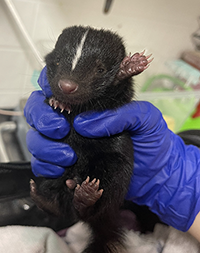 WILDLIFE ARE NOT PETS
WILDLIFE ARE NOT PETS
It can be tempting to keep these little guys and try to raise them yourself; they are just so cute and cuddly! People often want to show their friends and family. However, I strongly urge you to resist - these animals are wild and need special care! Some species like deer and bunnies experience what is called capture myopathy which is essentially where the animal becomes so stressed that it can die in the days, weeks or even months following its capture. Not only is keeping the animal detrimental to its well-being but trust me when I tell you that the baby raccoon may be cute and cuddly now, but it will be more than you can handle in a few weeks. So, I urge you, please do what is best for the animal and call a licensed rehabber.
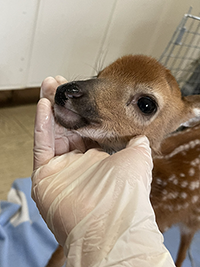
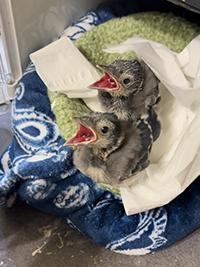 DO NOT LET YOUR PETS NEAR THEM
DO NOT LET YOUR PETS NEAR THEM
As you may know, wildlife can carry many diseases and parasites such as fleas, ticks and worms. Try not to let your pets disturb wildlife and protect your pet by keeping them up to date on their vaccines, and giving them parasite prevention, which you can pick up from our team at Gateway Pet Hospital.
CALL FOR HELP
If you suspect the baby has been orphaned or injured, you should call a licensed rehabilitation facility. Do NOT feed the baby anything unless instructed by a wildlife custodian as the baby may have an injury or illness that may be made worse by feeding them. Place them in a box with some soft blankets and place a warm heating pad underneath. Please see the link below for facilities in your area and make a call as soon as possible.
